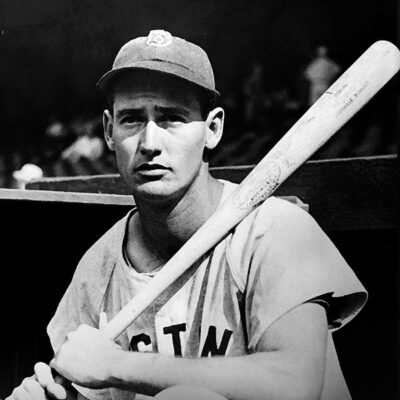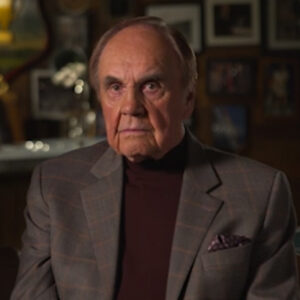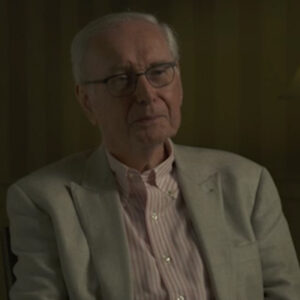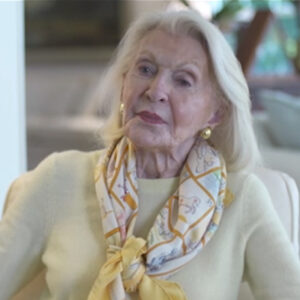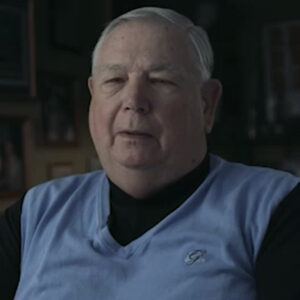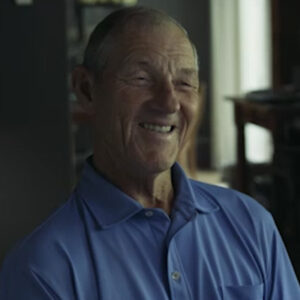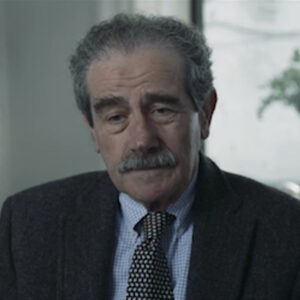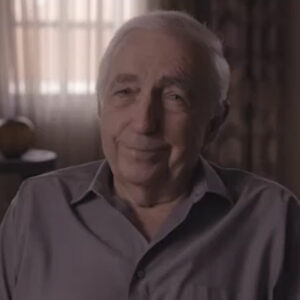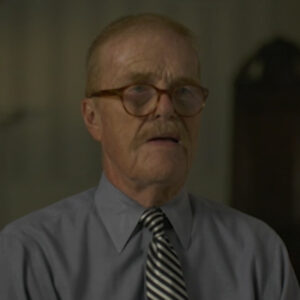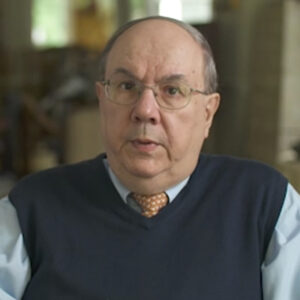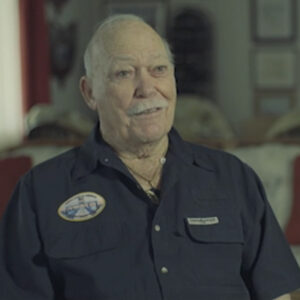Speaker 1 My father grew up idolizing Ted Williams naturally, and because I mean, who not to idolize the world’s greatest hitter of all time, but War Nine and my Little League days for Ted Williams and had a great junior year. And at 425 my junior year and then the beginning of my senior year, I was struggling in the beginning and my father checked out the science painting by Ted Williams and and Friday night said read it cover to cover for the weekend and let me know what you think on Monday and read it cover to cover on Monday. Would you get out of it? And I said patience and discipline. And from then on, I went on to 485 my senior year and got drafted by the Boston Red Sox, so my early days and my influential days of of Ted Williams were all about the science of hitting.
Speaker 2 So what is the philosophy in science? And we’ve talked about this before. And what what was Ted’s philosophy of it?
Speaker 1 Well, there’s there’s so many intricate parts that Ted had in his techniques, slightly upswing, which pitchers on a higher level drawing on a downward plane. And you want to be on that same plane on an upward swing and slightly up hips and hands, which is contradictory to the Charlie Liow theory, which is inside out the ball, which that was the way that I used to hit with inside out patience and discipline and with these three components that worked to count get a good pitch to hit when you do keep the bat on an upward plane, same plane as a downward plane from the pitcher and. Get a good pitch to hit, because that was the whole premise behind the cover of the book where Ted’s hot spots were. Now Ted’s hot spots were noticeably different than my hot spots because Ted was more of a down and an her and and try to generate power to drive the ball out to right field in Fenway Park as opposed to me. I like the ball a little elevated up in a way to where I could utilize the wall. So our philosophies in a nutshell were different. But the whole premise of getting a good pitch to hit working that the count getting a favorable count to get a good pitch to hit, if not walk, and which is somewhat of a lost art nowadays. The walk people think that it’s not fashionable to walk, but on base percentage when it comes to Ted Williams, he was the king.
Speaker 2 And what made him so much, I mean, what made him so good? I mean, it wasn’t just his eyesight.
Speaker 1 His 2010 eyesight, and he could he could see the ball when the pitcher released his hand and back in the day the pitchers only had fastball curve ball and not very many had change ups. And and the the evolution of the slider was the big thing that threw Ted for a loop. He had to hire a guy in the off season to throw him sliders to try to figure out how to hit a slider. And I think that that correlation is something that that nowadays guys that throw cutters is basically the same the same concept. But I talked to on many occasions with Ted and he said that took him about three months in the off season to really try to figure out how to see that red dot in the middle of the ball that created a slider. And he knew that it would break four to six inches and he knew that he could pattern his swing to move that bat into four to six inches to where he could hit it on the on the sweet spot. And once he figured out how to hit it, it was Katie. Bar the door after that.
Speaker 2 So was he a great natural hitter or was he the greatest natural hitter who ever lived?
Speaker 1 Well, that’s that’s hard to say if you compare that to. Henry Aaron, Willie Mays, Stan Musial, I mean, they’re all great natural hitters, and I think that each. Great hitter has to work that much harder in their own right to become something that looks natural, everyone said while hitting became natural for you. I had great eye hand coordination. I mean, I used to play ball as a kid and stickball and all of these things and and throw up dates and hit him with broomsticks and and various things to train my eyes to to see small objects to where when you faced a bigger object that looked bigger. But I think that that all the great hitters. Make it look easy, but the work that they do behind the scenes that a lot of people don’t see is is the work that is translated onto the field.
Speaker 2 Tell me again, is the Ted had great eyesight because I was talking.
Speaker 1 Oh, well, I think the one thing that that that Ted stood apart from so many other hitters was his eyesight. He was 2010 and when I had my eyes tested, I was 2012. So I had comparable eyesight to Ted Williams. But I think that that him being able to see the baseball further than other hitters and recognizing it sooner allowed him to center up to baseball a lot easier than a lot of guys that had 20/20 eyesight.
Speaker 2 Tell me again, because I don’t even think I knew this, you wore number nine when you were in Little League
Speaker 1 and Senior League. I wore number nine. Yeah, I was for it was for Ted Williams and Reggie Jackson, but mainly Ted Williams, because my father was a huge fan of Ted Williams and and played fast paced on the Air Force and and his old Air Force softball pictures. If you put him in Ted Williams side by side, you couldn’t tell them apart. And it was. I mean, I. You know, I had always wanted to meet Ted Williams. That was the one baseball player growing up that, wow, you know, if I ever get the chance to meet Ted Williams, it’d be, oh, my gosh, you know, because you fish with his fishing tackle all the time from Sears and Roebuck and and all of these things growing up. And you say, wow, you know, the the great Ted Williams. And it’s this mystical figure that you don’t you don’t really think is an actual person.
Speaker 2 So what was it like when you finally met him and how did you meet him?
Speaker 1 It was spring training in 1977. In March, my roommate and I, it was my first spring training with the Red Sox just finished up in Elmira. And we’re standing in line at the movie theater in Winter Haven and talking to my roommate and I turned around. And there he is, he’s two people behind me in the line and he’s just standing there and I went, oh my gosh, and I’m freaking out. I don’t know what to do. So I said, well, here it is, my chance to introduce myself to Ted Williams. So I walk up and I said, Excuse me, Mr. Williams, Wade Boggs, I’m a minor league player for the Red Sox, just got drafted last year. And few expletives in front of Can You Hit Kid? And I said, Yes, sir. He says, Well, show me your stance. And he got into the stance and we got into this. And then the line started moving to go in. And I didn’t want to go watch the movie. I just wanted to sit there and talk hitting with Ted Williams and just keep going on and on and on and on. But he was around during spring, the the the next few years while I was in spring training with with Winston and Bristol and Pawtucket. And he would walk around to the minor leagues and and we would chat, we would chat. And and the one thing that kept coming up was he had got to get those hips generated. You got to get those hips ahead of those hands and everything. And he’d watch me swing and hit line drives and various other places and and he’d shake his head and said, nope, you got to hit hips of hands and get him going and and you got to get in here like this. And I mean, he’s extremely animated, but yeah. I said, I’ll try it, Mr. Williams. And did you? For a little while,
Speaker 2 but so you’re his way of hitting didn’t really work
Speaker 1 for you? Absolutely not, because I but Ted, Ted’s philosophy was completely different than mine. My philosophy that my dad taught me was, wait, wait, wait. And so when you wait, wait and you wait so long on the baseball, you can’t get your hips started in front of your hands. In order to pull the baseball, you have to wait, then transfer your weight. And with me doing that with my eyesight, I could recognize the pitch and know whether or not it was going to be a ball or strike. And then. Consequently, waiting so long on the ball, it would go to left, center or left or or what have you, and I would always stay on the inside part of the baseball and never come around the outside part of the baseball. And so Ted’s philosophy was 180 degrees completely different than Charlie lol. But it was one of those that that. When Ted speaks, you listen, and I knew his philosophy. Really wouldn’t work for me, but I incorporate it on a Tuhoe pitch maybe and and cheat and get those hips started and get those hips in front of the hands a little bit and consequently popping up to second base and coming off of the baseball and doing various things wrong and. It’s it’s you don’t see a lot of guys in the major leagues. Hit like Ted Williams hips and hands, because, number one, you got to get everything going and everything’s leaving. So in order to stay behind the baseball, stay through the baseball and generate something. That’s what made Ted so unique.
Speaker 2 It’s fantastic. A. Did you argue with him? I’m sorry, did you argue with him, did did you and he get into it?
Speaker 1 Oh, absolutely. Never once did I argue with Ted Williams. Never. I would question him to the fact that. If it’s not broke, don’t fix it. I think that one of our first conversations was that got into. Me against Ted’s philosophy was 1984, he was a round Fenway Park, and I just want a batting title and it 363 and 200 hits and that kind of thing. And the first question, how many balls you pull? And I said very few, I said very few and that she’s not. And I said, well, if it works for me, why would I change? Well, you’ve got to incorporate it, and he would you would try to he would try to tinker with a few things. And then I think after the second batting title in 85 and we got to talking in 86, and a lot of people are are astounded that the conversations that Ted and I had were mostly about fishing. Very few about hitting.
Speaker 2 So tell me about fishing.
Speaker 1 Well, I have the utmost passion for fishing and so did Ted and Ted’s and the Baseball Hall of Fame and the AGFA Fishing Hall of Fame, and I have an utmost passion for fishing. And Ted would show up unannounced to Fenway Park and walk in the clubhouse and say, where’s Boggs? And I’d be sitting in my chair and he’d walk up, pull up a chair and go tell me how many fish you caught last winter on what line would you use? And that’s all they want or not. And we would sit there and I’d say, wow, you know, I had, you know, a great time bass fishing and well, what pound test you use. And he would always jump on me about using 20 pound test to catch large mouth that he goes, oh, it’s overkill. He says, you got to use four pound test. And we were just getting we’ve get more arguments about fishing than we would about adding. And then finally, the recognition came that Ted put me in his hitter’s museum in Citrus Hills because five batting titles later and Hall of Fame and various things like that. But I think we finally got to be on the same page.
Speaker 2 What is it about fishing? I know he loved fishing. I mean, and it’s part of our film. But what is it about fishing that that attracted you and is something similar to fishing and hitting? Is it what’s what’s similar?
Speaker 1 I don’t think there’s a lot of similarities. The one thing that that that fishing gives you is patience. That you’re waiting for the fish to show up so it develops patience, and when you’re hitting, you have to have patience. So if you’re. If you’re. There’s there’s not a lot of guys that that go up and swing at the first pitch a lot and don’t want that a fisherman. I guarantee that those are correlated with each other to the fact that. Just do some research about guys that don’t walk and guys that swing at the first pitch a lot. I’ll bet they don’t fish.
Speaker 2 That’s great. What about you, do you fly fish also, I mean, 10 would like meticulously craft these flies and stuff. Is that something that you know about?
Speaker 1 Oh, absolutely. I would I would love to fly fish and and bonefish down the Bahamas. I fly fish down the keys quite often. And Ted was the master at fly-Fishing up and his. New Hampshire and all through the streams up and and Canada and various places up through there and and. Legendary in the saltwater industry about bone fish and giant marlin and and things of that nature, but the one thing that that I have to say that the only regret that I’ve ever had was not asking Ted Williams to go fishing with me. That’s the one thing that I’ll I’ll take to my grave that that I wish I would have done, I have the utmost regret that I had all of these opportunities to ask Ted to go fishing and never did. And consequently ask Curt Gowdy. When Ted Williams passed away to Kirk Gowdy and I laid a wreath down an aisle morada for Ted. And I said, I’m not going to let this one go because Curt Gowdy fished with Ted. Countless numbers of times, and so I ask Curt Gowdy to go fishing with me for a couple of days and heard all the TED stories, and that was it somewhat made up for not asking Ted, but. It still haunts me to this day because every day that that I plan a trip to go to the Keys or plan to do this and the Bahamas or or even offshore for billfish, that I had that opportunity and didn’t take it.
Speaker 2 What do you think it was like to fish with him? I mean, I’ve heard some stories.
Speaker 1 Well. The stories about fishing with Ted Williams are legendary. I think that that the very first time that that Bobby Dorje went fishing with him, he. Belittling so much that Bobby Dorje wanted to go back to the dock and Ted’s a perfectionist, and his criticism not only would make you better. Make you a better fisherman, but just overall, round your fish ability to the fact that you’re not going to be as good as Ted because he won’t give you a. Every clue how to be as good as him, but you’re learning from the best teacher on the planet.
Speaker 2 Great, great. This is so fantastic, I just, you know. Thrilled the. Before we leave fishing. I think you told me on the phone that you got something from Dad,
Speaker 1 from his will I have from the Ted Williams Museum, I’ve got a shotgun and fly-Fishing case with a real and. And so I was thrilled to be included into as into his will after he passed away
Speaker 2 and I’m sorry, can you just tell that to me again that he, you know, in his will he left me, OK? Yeah.
Speaker 1 Well, various things that I’ve gotten from Ted Williams were from his will, and I’ve received a shotgun from the Ted Williams Museum that they presented with me and fly-Fishing case, along with a real so proudly displayed. But, you know, whenever you get a present from Ted Williams that you cherish for the rest of your life. Right.
Speaker 2 I notice you have the Leroy Neiman of Joe DiMaggio. Ted was always, you know, Ted and Joe, Joe and Ted, you know, these two icons of that time. How do you see them? Do you? I mean, I don’t know if you think that was just sort of random gift from Mr. Steinbrenner or or was that also because you cared a lot about Joe?
Speaker 1 The the proudly displayed Leroy Neiman of Joe DiMaggio was a gift after I got my 3000 tip from Mr. Steinbrenner. So it was a present. But going back to the legendary days of Ted versus Joe, it’s it’s kind of hard that a guy wins a Triple Crown and doesn’t win the MVP of the league. Consequently, that Joe DiMaggio had the 56 game hitting streak that year, but Ted Williams won the Triple Crown and. Come to find out that Joe DiMaggio won the MVP and Ted Williams, sorry, he finished second, but you won the Triple Crown. I don’t think that Pat on the back stood very well with with Ted and the writers and various things like that, because he had some discrepancies with the writers and and and. Fans.
Speaker 2 Well, so let’s get into that Boston. What is Boston different from other places?
Speaker 1 It it can be difficult at times if you’re not performing. It can be a tough place to play. You can ask. Various players that have left Carl Crawford, David Price is still there, but he’s having problems. Jones from Baltimore says that fans were saying various things. They’re passionate. I’ve had the ability to to to being be to be involved with with two fan bases that are so passionate about their their players, their legacy. When you play for Boston, you play for New York and both are passionate. I think that there was an animosity that that was built up for a long time of Boston, didn’t like New York because they were winning all the time and they were World Series after World Series after tickertape parades. And Boston was feeling left out and had some great teams run through Boston. I mean, 67 great team. Cincinnati, I mean, the. 70. 76, 75, yes, 75, great team, you know, ran up against a juggernaut of Cincinnati, 86, ran up against a juggernaut of of the Mets 88, we were very good. 90, we were very good. But we were playing against Oakland who were just a little bit better than we were. And we couldn’t find that one or two players to put us over the hump in 88 and 90. So I felt that that. That resonated into how the fans treated the players, that they were frustrated. And believe me, as a player in Boston for 11 years, we were frustrated, too. There was no bigger frustration than the end of the 86 World Series. I think you can see that on my face in the dugout, but. 2004 sort of took the giant gorilla off of the hacking and King Kong wasn’t around anymore, that, oh, my gosh, we finally have won a World Series and it went through a whole generation basically to to accomplish that from 1918 to 2004, possibly a generation and a half, that people were waiting for this to happen a few years later happened again. So now Boston’s feeling really comfortable about the fact that, hey, we’ve got some World Series championships here, too, and now they’re always in the mix. They’re playing well. And and the fans. Pre 2004, if you were to walk down Commonwealth AF. And the frowns on everybody faces post 2004. Now you walk down Commonwealth Avenue, everybody’s got a smile on their face and everything. So I said, I think that that changed the complexion of of how people feel that. The burden of not winning is gone.
Speaker 2 How much do you think Ted felt that he played their whole career, got to one World Series, only didn’t do very well and they lost in seven, so did. Well, I want to put it in your words, but I mean, to what extent was he the lightning rod for all that frustration?
Speaker 1 Well, I think that the. Possibly Ted carried some of that frustration on his shoulders because being the greatest player in baseball wanted to prove that not only individually I’m the greatest player in baseball, but I want to be associated with a World Series champion. And a lot of times. It it takes more than one person to to fill that void it I’ve never seen a World Series champions have one dynamic player that carried him through the course of the whole year to the course of the playoffs through the course of the World Series and finally won a World Series. It’s it’s never happened. And I think that the perfectionist in Ted was that person that that felt that, you know what? I wish I could have brought a championship to this city. I felt the same way. I felt the same way, and that I was part of something that. You know, you try to do so much that you go out there and believe me, I would have I would have loved. In my tenure in Boston to have. Won a World Series ring for the Boston Red Sox. I mean, that was that was paramount on anything that we ever tried to achieve. And that was our common goal from day one in spring training until we were mathematically eliminated in any season. So, I mean, we wanted to be that first team to say, OK, 1918 Claytor.
Speaker 2 Let me pause for a second, just change the tape. OK, great teamwork. Got it. I agree. Thank you. Uh. So tell me that again, so I said I said you could have invited to fish with you. And.
Speaker 1 Well, I’ve never really thought about, but having the notion of Ted inviting me to go fishing because the teacher never invites a student, a student always asks to go. So I. I would have. Love them the invite, but I should have. Taking the initiative and and asked Ted, hey, let’s go fishing.
Speaker 2 So which reminds me, when you were talking before about the sit down you had with Don Mattingly and Ted, and you used a great metaphor of what that was like
Speaker 1 in 1986 and spring training. Peter Gammons came to me and said, I’m planning on having a Sports Illustrated article with you and Ted Williams and Don Mattingly. Are you up for it? I said, absolutely. I said, yeah, sure. He said, well, the Yankees are in Clearwater this weekend and Don Mattingly will be over there. And I’ve already got in touch with Ted. So we’ll go over to Tio Pepe’s and Clearwater and sit down and have a roundtable and we’ll get you back to Winterhaven. And I said great. I said super. So we stroll into the restaurant about five o’clock, and I think we left the restaurant about eleven thirty, twelve o’clock. So we were sitting there and the sort of the metaphor that I used was you’ve got two young Jedi knights listening to Yoda and that’s that was pretty special that Donny and myself could have sat through that whole dinner and just listened to Ted talk. But he would interject questions and try to figure out our way of thinking. And really, one of the interesting things that came out of that whole interesting conversation and piece for Essi was when Ted asked Donny if he had ever smelt wood burning from a foul ball. And I said yes. And I looked at Donna and I looked at Ted like they had two heads. I said, What are you talking about? And Ted looked at me and said. You’ve never smelt wood burning, and I said never smelled it. He goes, Oh my God. He went off and just this rant that Oh, all good. Whitter Smell it. Nothing like this. The very next day, the first foul ball in spring training, I smelt it. And from then on, I smelted. Consistently. Maybe I didn’t know what to look for, but it was that wood burning set that you used to get as a kid and you would. It’s the edges and everything, and you could smell the wood burning, and that was a foul ball straight back, straight back. And if the wind was blowing right, it was the the leather of the baseball burning the wood and you could smell it. And just like that, the next day it happened and and. Oh, my gosh, it happened and I couldn’t wait to see Ted and he was around and he showed up about three or four days later and I ran right up to him, I said. Smelted dad, that was awesome. And from then on, I smelt it for the rest of my career.
Speaker 2 You described him really well, but like, how would you just describe him as a guy? Like, what was he like? You know,
Speaker 1 Ted Williams was what John Wayne wanted to be. Mean well, Ted Williams was a John Wayne, a baseball. John Wayne wanted to be Ted Williams. War hero. I mean, Ted Williams was larger than life and if you ever met him. He is larger than life. I mean, he’s he’s he’s very animated, somewhat higher than a PG rating. Sometimes not for younger ears only and. But that’s what made Ted Ted I mean, he was. You know, you take those five years and add those back to his career. Oh, my goodness. But. At that point in time. Ted Zahera. Athletes aren’t heroes. Baseball players aren’t heroes, football players aren’t heroes. Tadahiro.
Speaker 2 Did you ever talk to him about the war, he ever mentioned anything about it?
Speaker 1 Oh, absolutely. I was with it, Citrus Hills with the gentleman that that they flew wing to wing back from Korea when Ted was shot down and saved Ted’s life and. Thanked him for saving Ted’s life and an. You know, give. Ted crashes and no one has that end of of his career and longevity that he had after the war. It sort of like I and equate it to my father going to Guadalcanal at 16 and being shot if he dies in Guadalcanal. No one knows who Wade Boggs Boggs’s. So I sort of antiquated those two together to say that, wow, Ted Williams died in Korea, then no one would know that end of his life legacy that he carried on so well and and how he came back and won a batting title after after the war. And you sit there and go, really? I mean. That’s that’s amazing that that. The things that he did after he came back and really didn’t miss a beat when he came back,
Speaker 2 did you ever hear him complain about missing five years?
Speaker 1 Absolutely not. Absolutely not. He was so proud of his service to the United States that. If you ask him. He would have he would have rather been. It was number one. And. Being a service member and number two, being a baseball player, that was that was his philosophy in life that. And he felt that that was his duty and that’s the way he carried it.
Speaker 2 Did you know that he said that the Marines was the best team ever played for? Absolutely. Can you tell me that
Speaker 1 one of the neatest things, because my father was a Marine, one of the hardest things I’ve ever heard Ted say was was the greatest team they ever played for with the Marines. Semper Fi, because I’ve got three generations of Marine Corps myself, Guadalcanal, Vietnam and Baghdad. So my father and my brother and my uncle are my nephew, rather, were in the Marine Corps. And my dad would just sit down with Ted and just talk about military stories. And and these are the really neat things that I get to take away from Ted, because. How much? It meant to my father to meet him and talk with him and just sit down and in actuality my dad would talk hitting with Ted because my father was my teacher and growing up about hitting and everything. And he sort of carried the philosophy of TED with basically without the hips and hands, but the philosophy of Ted. And so when my dad got to meet him, it was a special moment for me that they could sit down and and they had the Marine Corps in common and they could sit down and talk about the Marines. And and my father would talk about World War Two and Ted would talk about Korea.
Speaker 2 The other thing we wouldn’t have had. I mean, so many things went ahead and died, but his last game and his last at bat. Can you tell me about that? I mean, what if, like, who doesn’t?
Speaker 1 Well, it’s Ted’s last at bat is. Hollywood storybook in two ways hits home runs last at bat. Rounds basis. Gets a curtain call from the fans, doesn’t come back out. Goes into the locker room, destress leaves. In 1984, I got to see him on his cap when he came back, and there is no retirement in 1984 and he took his cap off. To salute the fans, and he said. Should have done this a long time ago. And he did that and the crowd just went ballistic.
Speaker 2 Why didn’t he what was what was what kind of.
Speaker 1 We have to understand that that the reason fans would spit at Ted and and say things derogatory towards Ted and and Ted had a little running feud with the media and they would write articles about Ted and not in the nicest of light. And and so I think it got to the point that it was it was Ted Williams against everyone else. And he was he was a man on an island that that he just felt that, you know what? This is it. I’m done. I’m going in the locker room, I’m getting in my car and I’m riding off in the sunset. And that’s how Ted did it. Hey, no fanfare. I’m gone. This is this is the way we’re doing it and. You know, I’m not tipping my hat to the crowd, I’m not coming back out and throwing champagne on anybody or anything like this, no fanfare. Now, Ted, just like rode into the sunset.
Speaker 2 It’s pretty genuine, pretty genuine. That’s great, um, the, uh, so I just want to come back, because you do a couple of things. The story of how you first met him in the Movieline fantastic story, if I could ask you to just tell me again that you were in line to see a movie, and if you remember the name of the movie, great to know it. If not, that’s fine. And that while you were in the movie line, I just want to make clear we get it. I’ll give my editor options and stuff. OK, yeah. Yeah.
Speaker 1 Well, going back to the very first time that I met Ted Williams, I was in my first spring training in March of 77. I just played half a year in Elmira, New York, at 18 years old. So I was 18, standing in line to see a movie in Winter Haven, Florida, with my roommate during spring training. And I look around and bigger than life. There he is, Ted Williams. He’s probably two or three people behind me in line and just standing there looking around and and I said, now is my chance. I said, I read your book. I’ve heard all about you, I’ve worn your number and now’s my opportunity. So I seized it, went up to him and said, excuse me, Mr. Williams, I don’t want to bother you. I’m a minor league player. Wade Boggs played last year in Elmira, New York, and right out of his mouth. Few superlatives, expletives, rather, and said, can you hit? And I said, Yes, sir, I can hit. And he goes, show me your stance. And he gets into the stance and we start going at it and and three to five minutes go by and the line starts moving. And it’s it’s. Probably one of the the most traumatic times of my life, because I didn’t want this to end. I wanted I wanted to go on forever, and I didn’t want to go see the movie now because I was being involved in something that was far greater than any movie I could ever see. And and having the great Ted Williams show me his stance and how I held my hands and moved my hands and grabbed my hands and do this. And and I said, wow, this is this is this is neat.
Speaker 2 It’s great, uh, the one thing we didn’t touch on is for 06. How hard is it to hit 400
Speaker 1 in one count? The difficulty in hitting four hundred and one calendar year, it’s only been done. The last time was 1941, so it in 162 straight games, I had 404 and 162 straight games, but it wasn’t a one calendar year was from 85, 86 and 162 straight games that I played. And I had 404. But but that doesn’t count. It’s sort of like hitting streak from year to year. Wouldn’t count basically towards Joe DiMaggio, but. There’s a lot of ingredients of hitting 400 not only walks, but getting a lot of hits, and the year that I hit three, 68, I think I was three weeks away and maybe four hits. So not very. Not very much from hitting 400, but still light years away from hitting 400. George Brett made a run at it. Tony Gwynn made a run at it during the strike. Not really sure if that would have counted, but an asterisk would have been there for Tony Gwynn during a strike shortened year. But George Brett was the last to make the run at it. And I get asked quite often, will anyone ever hit 400 again? And. Plain and simple, no. People don’t walk in. And you’re not going to do it like George Brett did it, where you only play 118 games and barely qualify for a batting title or something like that, you get to get way too many hits and way too many walks and guys don’t walk anymore. So the days of the really high average, I’m not I’m not going to say that no one will ever hit 360 again. 370 again, 375 again, but 400 pretty darn safe.
Speaker 2 Did lose an MVP when he actually twice when he had the Triple Crown, as you mentioned, but 41, he also lost the MVP to Joe DiMaggio. Can you just compare the two of them again, just like as players and what that forty one season must have been?
Speaker 1 Well, trying to trying to compare Joe DiMaggio to Ted Williams is like apples and oranges. I mean, both great players, both dynamic in their cities, synonymous with if you think about Boston, you think about Ted Williams, think about New York, you think about Joe DiMaggio. So I think I think that they had this sort of. Idealistic format that they carried with themselves, sort of like when I was with Boston and Don Mattingly was with New York, they tried to correlate the two together that that you got two guys vying for batting titles and and they tried to sort of reincarnate the Joe DiMaggio, Ted Williams between Don Mattingly and myself and. They’re. Both Hall of Famers, both great players in their own right, but but I guess I’m a little biased when I come to the fact that the greatest of all time has got to be Ted Williams.
Speaker 2 Was he obsessed with getting the obsessive?
Speaker 1 Oh, absolutely. The one thing that I would I would say about Ted Williams, he was obsessed with hitting. He he. He took it to another level and naturally the science of hitting Ted would break it down, and whenever someone is so good at something and tries to teach it to someone else who’s not as good. They kind of get defensive, they kind of get a little irritable that if I can do it, you can too kind of mentality that that comes with with being so great. That Ted can’t understand why. Everybody else can’t be like Kim. But if you ask Ted Williams, who’s the greatest hitter that ever lived.
Unidentified He’ll tell you. What do you think himself?
Speaker 1 And he said on numerous occasions. That he is the greatest hitter that ever lived. That’s saying a lot, that’s a lot. I mean, there are there have been a lot that have come down the pike and. I mean, you. I named a few already, Hank Aaron, Willie Mays, Stan Musial, but in my opinion. Throw the five years. And just add the average numbers that Ted had into those five years, no question. Not even an argument.
Speaker 2 You didn’t mention Baber’s.
Speaker 1 I didn’t, did I? He’s right up there, too. He’s a good actor to.
Speaker 2 I mean, they’re fun, are you silly, you know, I but it’s great, fantastic, the. What about hitting three eighty eight at the age of thirty eight or thirty? I mean, he’s really getting up there and at three eighty eight. I mean, the consistency across so many years. How how do you maintain that and you did it? I mean, how does one do that?
Speaker 1 I think the one thing that that led to Ted’s consistency over the years that he played, as is even at the age of 38 or 39, 83, 88, and he never seemed to get old. He he never slowed down and still had that long, loopy swing and still generate the hips ahead of hands and and didn’t really get out of shape. I probably stayed in the greatest shape of his life during the five years he went to Korea and doing all the Petey’s every morning at five o’clock in the morning. But other than that. He never he never lost the eyesight, never lost his sight and probably never lost the drive, he always wanted to be the best. And that will drive you to your 38, 39, 40. Those things will drive you. And believe me, Todd had the greatest driver of anyone to ever play the game. So I think that these are the outstanding or the astonishing things that that when people say that, you know, Ted was really good when he was old. And was getting ready to retire. He was still really good and I think that that’s the way that Ted wanted to go out is. The greatest, but go out really good.
Unidentified Great. Um, OK. Oh, well, so, yeah,
Speaker 2 talk to me about some people have said, you know, without getting into the kid’s childhood and all that, which you may or may not know about, but that hitting a baseball can be considered a violent act if you’re hitting it and you’re expressing rage. Do you buy that?
Speaker 1 No, I think it’s a symphony when it’s done well,
Speaker 2 what is art?
Speaker 1 Oh, I’m sorry. A lot of people have compared hitting to to rage. And it’s a violent act. I think it’s a symphony when it’s when it’s done well, that it’s poetry in motion, that that one of the the things that I would always bring up that Ted said the most difficult thing to do in sports is hit a round ball with a round bat. And for Ted Williams to say this is the most difficult thing to do in sports, it really has to resonate to the fact that if you carry baseball philosophy over to other aspects of life, that you can fail seven out of 10 times and be a Hall of Famer. If you’re a doctor and lose seven out of 10 patients, you’re not a doctor for very long. If you’re an attorney and lose seven out of 10 cases, you’re not an attorney for very long. So the the difficult. Factor as far as. Being successful three out of 10 times, calling that a success is how difficult. It resonates with baseball and its philosophy, so. I really wouldn’t classify as a violent act, it’s it’s it’s it’s more of it’s more of physics. You’ve got to swing hard because it’s you’ve got to generate more velocity and you’ve got to generate more energy than the energy being generated by the pitcher who’s throwing 92, 95, 100 miles an hour. If you take a nice, easy swing, the pitcher knocked the bat out of your hand. So you’ve got to generate bad speed in order to compensate for the velocity that the ball’s coming in. So in one way, it’s it’s a it’s an angry sport because you’re hitting something, but it’s an inanimate object that you’re that has no feelings and you take those non feelings and then translate them into. Hitting a baseball and saying, wow, it’s it’s it’s not really a violent act, it’s it’s. Part of the sport,
Speaker 2 but I never I never heard it expressed so well that you really feel like you have to be comfortable with
Speaker 1 feeling people aren’t. You’re brought up not to fail. You’re brought up to make A’s in school if you’re going to see. Your parents put you on restrictions because you got to see. So if you go one four four, did you fail? Or do you go to four four and pass? And I mean, these are the things that you asked yourself, what what what do you classify as failure? And are you content with. Only. Getting two hits out of 10. Or. I mean, back in the day, Ted was. He was not content with making six sickouts. And that was hitting 400. So he’s only making six outs where the rest of us had to make seven ounce. So.
Speaker 2 It’s amazing. Just you have to be you know, you’re not going to go down for them, even that’s not going to go down for 10. So you have to be able to. Make peace in some way or no way with the fact that you’re going to fail or not not
Speaker 1 get a hit. Well, as far as failure goes and translating failure, I coach high school baseball here in Tampa and I these are some of the things that I touch on because kids go up and he makes an out and now he’s irate. That he made it out. So he still has three more at bats during the game, you know, three, four, four. So why are you irate after your first at bat when all that’s going to cause is anger and anger causes lack of concentration? It floods your mind with negative thoughts. Rather than keeping everything open and my philosophy as concentration is the ability to think of nothing. So if you’re all for one, you’re very next at bat, your one for two. And then you two for three and then you walk the fourth time, so you had two for three for a walk, but you were so mad after your first at bat. I don’t understand it. So you really have to calm yourself down and you see in the big leagues, I mean, yeah, I’ll come back and beat up a water cooler after he’s over one. And and I played one of those guys in New York but know for one. But a lot of guys use that anger and translate it and take it up to the plate for their next at bat detector. And I’m mad. I’m mad now. I can get them now and. And be relaxed,
Speaker 2 but detent hit that way. I mean,
Speaker 1 I think Ted was a student of the game. The neat thing about Ted Zera is that he got to beat up on starting pitchers for a long time. There wasn’t a guy coming in in the fifth inning and a guy coming in in the sixth inning and facing four different pitchers during the game and and, you know, you had some guy out there for eight innings or nine innings, had just thrown 175 pitches and his arms falling off. And and the very next game you got to face Bob Feller. But other than that, Ted was he kept a mental book on on everybody. And up until Ted passed away, I had conversations with him and he could remember counts back in 1948 of it facing so-and-so. And it was a sunny afternoon at 327. And first pitch was a slider down. And then next pitch was a curve ball away. And next pitch was a fastball up and away. And it was three a.. And he threw me a fastball and hit a homerun. And it just rattles it off. And that’s how Ted was, he had that mental book and he could he could tell you everything about how this guy was going to try to get him out. And if he didn’t throw anything that he was going to hit, he walked. That’s right. Ted Williams walked 120, 130 times a year is because nobody wanted to face Ted Williams. Understandably so.
Speaker 2 Did you ever see him like when you were talking with with him and Don Mattingly? I think there was a moment and there were many things that I don’t know, you know, like someone threw something and he wasn’t sure what it was. And you hear these stories about his teammates, you know, grounding out and they were throwing Bobby everything I don’t like and just couldn’t understand how someone didn’t have his mental focus.
Speaker 1 I don’t think it was a part of when Ted would get upset about people not knowing what the pitcher was throwing. I think it was the fact that Ted’s eyesight was so much greater than everyone else’s that Ted could recognize. What that pitch was and other people would strike out or what have you and not really know what they swung at because it was late breaking or or the guy took something off of a fastball and and Ted’s recognition of pitches was was so astounding that he could recognize a pitch right out of the pitcher’s hand and make an adjustment and then carry on with the swing. And I was hitting instructor in 2001 and I had guys come back to the bench and I said, why did you swing that to change up? And said, no, I wanted to change. I was a fastball. And I said the pitch was seventy eight miles an hour as a changeup. He says now is a fastball. I said, no, it was a changeup. So I’ve seen guys come back to the dugout and go, I have not I have no idea what they’re what they’re. Then how are you expected to do the toughest thing in sports? Ted says hit a round ball with around bat if you don’t know what you’re swinging at. These are the great things that boggles my mind when when people start talk about hitting is that if you don’t know what they’re throwing and you can’t recognize what they’re throwing, how in the world are you going to do something that the greatest hitter that ever lived says that this is the most difficult thing to do? So if you’re not having success, you need to make an adjustment. And one of the greatest adjusters of all time was Ted Williams. He would figure out how the pitcher was throwing and make an adjustment. And next thing you know, Ted’s four, four, five with a couple of home runs.
Speaker 2 Yeah, but talk to me about the shift. Oh, OK. How are you doing? Or and thank you. So you said before Ted made adjustments, obviously did during the course of a game, but how did he deal with the shift which was invented for him?
Speaker 1 Well, one of the neatest things about. Ted Williams hitting 400 is the shift that. Lou Boudreau, who initiated the very first Ted Williams shift, who in their right mind would ever come up with a concept of putting everybody on the right side of Fenway Park and leaving the left side open with the green monster over there? Unless you’re dealing with the attitude of a Ted Williams. When you say he’s the greatest of all time, why wouldn’t he just go the other way and hit 500? But. You can’t beat Ted Williams, and I think that that was the challenge that he wanted to not only present to himself, but to present to everyone else that that guess what? We finally figured out how to get Ted Williams out. No, you didn’t. You just made him better, as all you did was put everybody on the right side and I’m still going to get hits. And if not him and hit home runs winding up with five twenty one and and consequently hitting the ball so hard that guys couldn’t move three feet to their left or right that they could make a make a play on Ted Williams. So. When you when you look at when you look at that aspect and how much success he still had after all of these shifts were. Presented to him, and nowadays the shifts are costing these hitters so many points on their average and. It’s it’s kind of mind blowing to sit there and go, you’re talking about a professional hitter who there’s nobody on the left side of the field that the guy can’t wait a little bit longer and hit something hard to the left side of the field. Know they try to hit the home run and they hit a line drive into right field with you got your short fielder out there that acts like he’s playing softball, but now he’s out or the guy can’t run and it’s a ground ball into the outfield. And the guy, in short. Right, throws him out at first. So but shifts were a big thing with Ted Williams. And now. Teams put a shift on everybody, but that was where it all began and Ted said. I don’t care about a shift, you’re still not going to get me out.
Speaker 2 What do you love about hitting?
Speaker 1 That the one thing that I love about hitting is that it’s you against the guy 60 feet, six inches away. One on one, nobody can throw a block, nobody can set a pick. Nobody’s going to throw a touchdown pass to you. It’s you against the guy on the mountain. But once it leaves the bat, you still have seven players that are spread around that that become. The then it becomes the eight on one that you have to defeat, but just the one on one confrontation with the pitcher. That’s that’s the neat thing that that really gets you flowing and and and really excites you because you sit there and go, OK, who’s on the mound today? Who’s on the mound today? Jack Morris. Tom Seaver, Steve Carlton. Dave Stewart. Dave Stoebe. You know, I mean, you sit there and get fired up. At night, when you’re getting ready to put your head on the pillow, that, OK, here we go. And it’s that confrontation that he’s trying to figure you out and you’re trying to figure him out. So it’s the back and forth cat and mouse game that that goes on between the the the little. Little game within the game kind of aspect, and you have to understand that you may go up and go through the whole entire game and the guy doesn’t want to pitch to you. And you sort of get a sense of that early on during the course of the first at bat into the second at bat, that he’s not out there to pitch to you, and especially if Sparky Anderson is the manager and he’ll intentionally walk you four times in a game that he doesn’t want to face you. So but that’s that’s the one thing that the baseball offers, is that that it’s a. Team sport made up of nine individuals.
Speaker 2 One of the curious things about this project is I would’ve done it for, you know, here. For free, but it’s for PBS, American Masters, they’ve never done a baseball player. They only do artists and scientists, sometimes the occasional scientist. Where it is, I think it’s interesting and I’m wondering if you think it’s interesting that Ted Williams is the first like is is he an artist? Is he a scientist? Is there something about being a ballplayer that can be likened to either of those things?
Speaker 1 Well, I think I think that that. Having PBS choose Ted Williams is their first baseball player sort of wraps up their concept of of artistry. And the science world all rolled into one. Because he’s he’s his his brush is his bat. And his brain is the scientific flow of what comes out of that in order to change the dynamics of a game and sort of think. A little bit more than sort of. Compare him to Einstein, that Ted was that much smarter than everybody else, that he could figure out things a lot quicker and and his bat being the brush and Fenway Park is the canvas. So to to sit there and go, oh, he’s an athlete. But no, it’s it’s it’s the art, the art. The artist and the scientist all rolled into one that that make it so special.
Speaker 2 What do you do this for a living? That’s great, thanks. Do you have anything else?
Speaker 1 Yeah, yeah. One last thing. Yeah. May 26, 2000. 16. The Boston Red Sox retirement, my number and. The one number that I looked up there when they unveiled mine. I like to tell. And Claudia Williams brought me my 26 from the scoreboard and super picture of giving her a big hug and and telling her how much I wished her dad was here. Just. Be in that moment, and it was so special to be up there with the greatest that ever lived.

